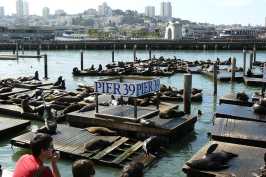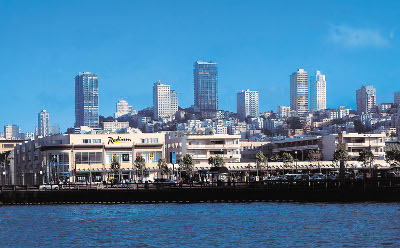7th International Symposium on Deep Frying
[updated 12.10.2012]
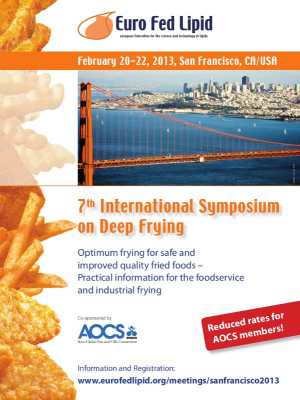
Optimum frying for safe and improved quality fried foods-
Practical information for the foodservice and industrial frying
February 20-22, 2013, San Francisco, CA/USA
Co-sponsored by

Reduced Rates for AOCS-Members!
Dear Readers,
Since 1973, the international symposia on deep-fat frying organized through the DGF and Euro Fed Lipid have
been the premier meetings on this misunderstood and underappreciated topic. The frying process is a very popular,
efficient and ancient method to prepare foods that have desirable color, appearance, flavor and texture. T
he bottom line is that fried foods taste good, hence their popularity. 5,000 year old Chinese texts reference the process.
However, frying is done in oil and the foods that are fried pick up some of that oil, which has resulted in issues with
the health and wellness set.
The frying process is one of the most dynamic of all food processes. If one was to classify it as a process, it would be a
combination of drying and cooking. Fried foods lose moisture as they cook and depending upon the food being fried, the end
product may be moist with a delicious crust (chicken or fish) or dry and crunchy (crisps or chips). Understanding this process
and maintaining the quality of the oil is essential to high quality foods. Bad oil equals bad food which causes your customers
to go elsewhere.
There are a wide variety of analytical methods, both rapid and official, have been developed to test the chemical and physical
properties of heated and abused oils. Hundreds of different compounds have been detected in frying oils and in the food itself,
some of which are deemed to be unhealthy. The previous six symposia on deep frying have focused on subjects such as determining
the proper chemical indices for evaluating the degree of fat degradation, understanding the frying process from an engineering
standpoint and new methods and technologies aimed at improving the overall process. The end result of these symposia have been
the establishment regulations to govern foodservice and restaurant frying; they have established guidelines for improving the
frying process; and provided oil chemists with analytical tools to better understand how food fries.
The thrust of the most recent symposia in
San Francisco in 2005 and
Hagen, Germany in 2011 have been to help processors, food
service operators, regulators, suppliers and academics better understand the frying process in light of the worldwide emphasis
on health and wellness and concerns about the effects on obesity on people and the social systems. Rather than condemning frying o
utright, the key has been to improve efficiencies, better understand how the new generation of healthy oils (low- and no trans)
oils perform, and even look to the past for lessons on how to do things better.
The technical program of the 7th International Symposium on Deep-Fat Frying looks to address issues such as old and new technologies
and products for process improvement, diet and health, the regulatory environment where fats, oils and frying is concerned, and
methodologies to better evaluate the oils used for frying and the foods being fried.
Food processors and restaurant operators that fry foods and the suppliers to these industries, which includes oil producers,
food and ingredient suppliers, equipment manufacturers and the service trade understand that to remain in business they must
not only produce foods that are safe and wholesome, but taste good and are good for you. The pressures on the industry are great,
but understanding the process and technologies, the markets and the demands of the business can help build the bottom line. Our
goal is to provide you with the knowledge to improve and move forward in the future.
We look forward to welcoming you in San Francisco in February 2013.
 |
|
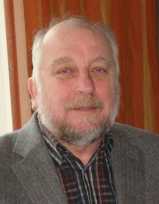 |
Richard F. Stier
Sonoma, CA/USA
|
|
Christian Gertz
Hagen, Germany
|
Lecturers
[updated 01.10.2012]
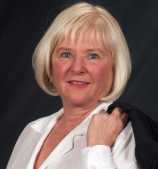 Dr. A. Elizabeth Sloan
Dr. A. Elizabeth Sloan
Sloan Trends, Inc., a 17-year old consulting company, with focus on new market predictions, trend-tracking and business
building ideas for the food, beverage and restaurant industries. Dr. Sloan is also the trends columnist for Food
Technology magazine.
She was Editor-in-Chief, at McCall's magazine; Director of the Good Housekeeping Institute/Seal, and Assistant Editor-in-Chief
of Good Housekeeping magazine - each with 35+ million readers monthly. Dr. Sloan was SVP/International Director,
Food & Nutrition, Hill & Knowlton Public Relations; 1st Scientific Director, Am. Assoc. of Cereal Chemists & Director
of Nutrition Communications/Technical Services, General Mills.
She has authored more than 400 articles on food, nutrition, and health marketing, and received her B.S. in Food Science at
Rutgers University; and her Ph.D. in Food Science, at the University of Minnesota.
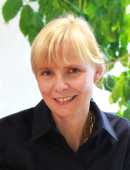 Prof. Dr. Veronika Somoza
Prof. Dr. Veronika Somoza
Institute of Nutritional and Physiological Chemistry, University of Vienna, Austria
Born 25 Sptember 1965, Braunschweig, Germany
Current Position: Professor and Chair, Institute of Nutritional and Physiological Chemistry, University of Vienna, Austria
Education and Career History:
1985-1991: Study of Human Nutrition, University of Giessen, Germany
1991-1995: Ph.D. program, Institute of Human Nutrition, University of Vienna, Austria (grade: summa cum laude)
1995-2002: Habilitation program, University of Kiel, Germany
2001: Post-doc with Prof. Dr. John W. Baynes, at the Dpt. of Biochemistry and Chemistry, University of South Carolina, USA
2002: Habilitation (venia legendi) in "Human Nutrition and Food Science", University of Kiel, Germany
2003: Vice Chair of the German Research Center for Food Chemistry, Garching, Germany
2003: venia docendi for the topic "Food Science" at the Technical University of Munich, Germany
2007-2009: Associate Professor (tenured) at the Department of Food Science, University of Wisconsin / Madison, USA
2008-2009: Chair of the working group "Bioactive Foods" at the German Research Center for Food Chemistry, Garching, Germany
since 09/2009: Member of the Food Research Institute, Madison/WI, USA
2009-2011: Chair of the Research Platform Molecular Food Science, University of Vienna, Austria
since 2011: Chair of the Institute of Nutritional and Physiological Chemistry, University of Vienna, Austria
Publications: about 85 (co)-authored research publications and review articles
Review activities: Multiple journals with a focus on functional food constituents: e.g. J. Agr. Food Chem., Mol. Nutr.
Food Res, Chem. Res. Tox., Food Chem Tox, etc.; Senior editor of the Journal Molecular Nutrition and Food Research
Memberships: German Society of Nutrition, German Chemical Society, American Chemical Society
Research interests: Bioactivity and metabolism of fatty acids, polyphenols and Maillard reaction products
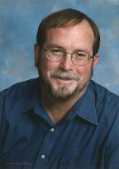 Richard F. Stier
Richard F. Stier
Consulting Food Scientists, Sonoma, CA/ USA
Richard Stier is a consulting food scientist with international experience in food safety (HACCP), food plant sanitation,
quality systems, process optimization, GMP compliance, and food microbiology. He has worked with a wide range of processing
systems and products, including canning, freezing, dehydration, deep-fat frying, aseptic systems, meat processing and processing.
He has shown a unique ability to work with companies at all levels, from top management, including marketing, to line workers,
to understand, develop and implement systems to enhance operations. Stier has been instrumental in helping processors, including
many small processors develop the quality, food safety and sanitation systems needed to compete in today's market and grow their
business. He is also a food safety, GMP, and quality systems auditor. Stier has worked in Asia, Africa, Australia, Central and
South America, and Europe. All totalled, he has done projects in over forty countries.
Stier has been certified as a seafood HACCP instructor (AFDO) and by the HACCP Alliance.
Stier has a B.S. in Food Science from Rutgers University and an M.S. in Food Science and Technology from the University of
California at Davis. He is a member of the IFT, IAFP, and the NCAACC. He is past Chairman of the Northern California Section
of the IFT and of the Northern California Section of the AACC, a past-Chairman of IFT's Refrigerated and Frozen Foods Executive
Committee, is a former member of the IFT Program Committee, a past-Chair of IFT's Continuing Education Committee and former
councilor representative to the IFT's Executive Committee. He is a Contributing Editor to "Baking & Snack", "Food Engineering",
and serves on the editorial board of Food Safety Magazine. He has served on the IFT's ad hoc panel assembled to comment on proposed
food safety regulations and is a member of the United States delegation for TC-34, the technical committee charged with developing
the ISO 22000 standard.
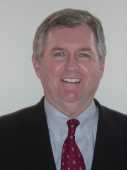 Dr. James R. Coughlin
Dr. James R. Coughlin
Academic Background:
-Bachelor's Degree, Chemistry, Siena College, Loudonville, New York.
-Master's Degree, Food Science and Technology, University of California, Davis.
-Ph.D., Agricultural and Environmental Chemistry, University of California, Davis.
-Postdoctoral Fellowship, Environmental Toxicology, University of California, Davis.
Industrial/Professional Experience:
Dr. Coughlin has 40 years of experience in food/nutrition science and regulatory affairs; food, chemical and environmental
toxicology and safety; chemical risk assessment; diet and cancer evaluations, especially coffee and meats; benefit-risk
evaluation of foods and food ingredients; GRAS food additive safety evaluations; safety and benefits of functional foods;
California Proposition 65; health effects of caffeine, dietary nitrite/nitrate, Maillard carcinogens such as acrylamide and
furan; safety of imported food ingredients and biotechnology-derived foods; food and environmental chemical analyses;
naturally occurring food toxicants; antioxidants in foods and supplements; and scientific risk communication.
He provides
strategic scientific, toxicologic, nutritional, communications and regulatory counsel to many food, functional food, dietary
supplement, chemical, and consumer products companies and their trade associations, law firms and public relations firms.
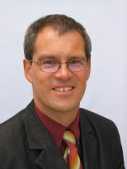 Dr. Bertrand Matthäus
Dr. Bertrand Matthäus
Food Chemist, Scientist at the Max Rubner-Institute, Federal Research Institute for Nutrition and Food, Detmold, Germany
In this position he is responsible for research dealing with the improvement of the quality of fats and oils, especially rapeseed
oil, with the investigation of frying processes, with contaminants like acrylamide, phthalates or 4-hydroxy-2-trans-nonenal,
3-MCPD-esters and with the investigation of oxidation processes in edible fats and oils. He is a member of the MRI-Rapeseed oil
panel evaluating the sensory quality of rapeseed oil.
Since the last 17 years he has worked for the Max Rubner-Institute. He has published more than 160 articles, scientific papers and c
hapters of books. In several projects he worked together with the industry to evaluate and improve the quality of frying oils but
also virgin rapeseed oil. He has presented lectures during the last three International Symposiums on Deep-Fat Frying held in Germany
and USA and is co-organizer of several symposiums on Fats and Oils given for the industry. Matthäus is a member of the Euro
Fed Lipid association and the German Society for Fat Science.
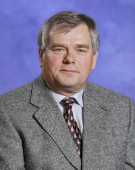 Dr. Roman Przybylski
Dr. Roman Przybylski
Dr. Przybylski has extensive experience in the chemistry of oil components related to utilization of vegetable oils for food
formulation, preparation and processing. He has worked for over 30 years with vegetable oil development, processing and
utilization mainly assessing changes occuring to the oils endogenous components.
For the last 10 years the main emphasis of his research were directed to improvements in frying to eliminate formation of
deleterious compounds. This research lead to the development of new canola based frying oil, new antioxidants designed
specifically to protect oil during frying and physical methods to protect oil from degradation. His research include chemistry
of phytosterols, generally neglected oil components, showing that these minor components can initiates oil degradation during
frying and stimulate formation of deleterious compounds.
He provides strategic, scientific and nutritional counsel to many food, oil development, frying and oil processing companies.
 Monoj Gupta
Monoj Gupta
MG Edible oil Consulting International, Inc., Richardson, TX/USA
Monoj K. Gupta is the president and founder of MG Edible oil Consulting International, Inc. which he founded in 1998. He has
been in the field of oil technology and food processing for over thirty-nine years, and holds a Master's degree in Chemical
Engineering from the University of Florida, Gainsville, Florida.
As President of MG Edible Oil, he is currently providing consulting services to Oil and Food Processing companies in the United
States, Latin America, Africa, Europe and the Middle East. Prior to founding MG Edible Consulting, Mr. Gupta worked at Frito-Lay,
Inc., for eleven years where he advised the company on oil application for the worldwide operation of Pepsi CO.
Mr. Gupta began his career working for Procter & Gamble (P & G). His assignments included working in P & G's Food Research and
Development department where he was subsequently promoted as a Group Leader in the area of dry prepared mixes (Duncan Hines).
Later he worked as the Department Manager of the Shortening and Oil Production department, which produced nearly 300 million
pounds of shortening and oil products. Later he joined the Anderson Clayton, Inc. a Houston based multi-national company,
where he was responsible for productivity improvement and engineering in several plants in the U.S. and in Mexico.
Mr. Gupta is also the author of numerous technical publications in the U.S. and in other countries. He has written several book
chapters, published in the U.S. and U.K.
Mr. Gupta has provided consulting service around the world on vegetable oil processing, plant engineering, oil quality and
application, as well as has been engaged in assisting U.S. food companies and oilseed companies on trans fat alternatives for
the past seven years.
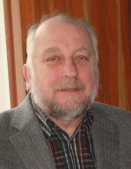 Dr. Christian Gertz
Dr. Christian Gertz
Hagen/Westphalia, Germany
Dr. Gertz was director of the Official Institute of Chemical and Food Analysis in Hagen. His experience in fats and oils
extends over 35 years.
Since 1997 he has co-chaired the Analysis and Standard Methods division of German Society for Fat Science (DGF) and has been
responsible for the editing of the DGF Standard Methods for many years.
He is member of the "Joint Committee for the Analysis of Fats, Oils, and Fatty Products" of DIN, Federal Health Office and DGF.
He is also involved with various international working groups in Europe and the German Sensory Panel of Olive Oil.
He has published more than 70 scientific papers including 3 book chapters and edited 2 books. His area of research includes all
aspects of frying processing (analytics, HACCP, thermooxidative degradation, heat stabilizing agents, fat quality) and analysis
of fats and oils (Olive oil and the development of chemometric methods to identify fats and oils).
His awards include: in 1982, the Josef Schormüller Foundation by the German Food Chemical Society and in November 2004 he received
the Normann Medal by the German Society for Fat Research (DGF).
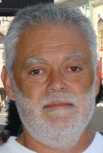 James Padilla
James Padilla
Director of Product Development - Processing Systems Division
Located at Heat and Control's World Headquarters - Hayward, CA
19 years at Heat and Control
Responsible for the Process Product Development, Processing Equipment Design, Applications, Technical Center in the Prepared Foods
market.
I have worked in the food industry for over 30 years in the areas of food product formulation, quality control, process development,
applications, and equipment development. I have a strong back ground in process technology with an emphasis in thermal transfer
techniques which focus heavily on frying, dehydration, retort technology, conventional and dielectric (radio wave and microwave)
heating methods. I have an educational background in Food Science/Technology while my work experience has been gathered from the
Global Prepared Foods market.
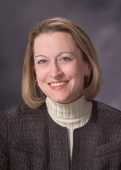 Linda Brugler
Linda Brugler
RD, MBA, CFSP
Sr. Product Manager, Frymaster a Division of Manitowoc Foodservice
Linda manages the marketing communication, advertising, promotion and performance of a diverse deep fat frying product line for the largest
manufacturer of deep fat fryers in the world. Additional responsibilities include field sales support and training, as well as defining,
testing, and bringing new products to market. Linda has utilized her RD and institutional foodservice experience to foster a FitFrying
initiative at Frymaster which has transformed into an industry-wide coalition of like minded industries, working together to promote healthful frying.
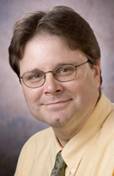 Robert G. Brannan, Ph.D.
Robert G. Brannan, Ph.D.
Associate Professor, School of Applied Health Sciences and Wellness
Dr. Brannan is a chef and food scientist who came to Ohio University after a career as a research chef in the meat industry.
He teaches graduate and undergraduate courses and maintains an active research program in the School of Applied Health Sciences
and Wellness at Ohio University.
He is graduate coordinator of the Food and Nutrition Sciences program and also serves as chair of the Food Chemistry division of the
Institute of Food Technologists.
His applied research program focuses on the use of food proteins as inhibitors of oil absorption in fried meat products, with the
long-term goal of producing reduced-fat, battered and breaded meat products that contain less than 35% calories from fat using
techniques that can be easily adopted by the meat industry. Dr. Brannan's lab has studied the physico-chemical and sensory
properties of protein solutions from milk, egg, soy, and corn that are applied after the product has been breaded.
Dr. Brannan also has performed consulting for a variety of food companies.
Fees
[23.08.2012]
Status
|
until 18 January 2013 |
after 18 January 2013 |
Member*
|
495 US$ or 395 Euro |
545 US$ or 435 Euro |
Non-Member
|
545 US$ or 435 Euro |
595 US$ or 475 Euro |
Students
(proof needed)
|
150 US$ or 120 Euro |
200 US$ or 160 Euro |
* Euro Fed Lipid, AOCS or Euro Fed Lipid Member Associations
** The student status is granted to undergraduate, postgraduate and Ph.D. students. Please provide a suitable proof of your student status with the registration (e.g. copy of the student card, confirmation of the institute or similar).
Registration fees are not subject to value added tax (tax exemption according §4 Nr. 22a UStG).
The registration fee includes:
Entry to the scientific programme, poster sessions
Book of abstracts
List of participants
Free registration for the opening mixer
Dinner Thursday
Lunch Thursday and Friday
Coffee Break beverages
After registration you will receive an invoice.
Paying by Bank Transfer:
Please transfer the total fees (free of bank commission) to:
Euro Fed Lipid e.V.
Deutsche Bank, Frankfurt/ Main
Account No. 2401 610 00
BLZ 500 700 24 (Routing Number)
IBAN DE 71 500 700 240 240 1610 00
BIC/SWIFT: DEUTDEDBFRA
Please quote your reference number.
Paying by Credit Card
We accept Visa, MasterCard and AMEX






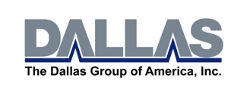
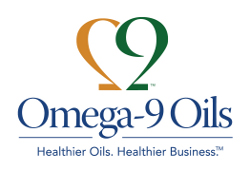

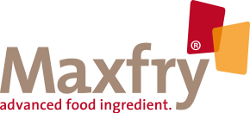


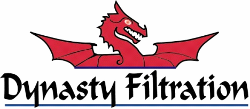






 Monoj Gupta
Monoj Gupta


 Robert G. Brannan, Ph.D.
Robert G. Brannan, Ph.D.

